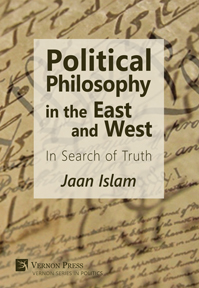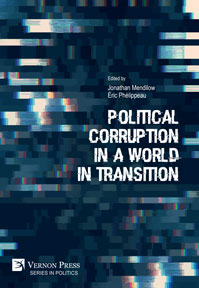Towards A New Social Order? Real Democracy, Sustainability & Peace
by Patrick Holz
Purchase this book
(click here to change currency)
"This contribution by Patrick Holz is, in many ways, exemplary social science. It realizes two main objectives. First, Patrick demonstrates how both the social and the natural sciences helped create and institutionalize the social dominance paradigm, a comprehensively influential social, political and economic structure going back to the first stratified Near and Middle Eastern societies about 5,500 years ago. Second, he puts forward a ‘realistic utopia,’ a possible world or, in the parlance of the book, the peace paradigm which rests on scientific facts that function as the necessary building blocks for the creation of an alternative world. Patrick also indicates to which degree the latter might have been already established. This is not only an assured interdisciplinary contribution but also a good read as multiple viewpoints are brought together to show that there indeed are other societal options available."
Prof. Dr. Carsten Herrmann-Pillath
Max Weber Centre for Advanced Cultural and Social Studies, Erfurt University, Germany
"Patrick Holz provides a detailed and devastating account of the origins and ills of the current socio-economic order as a reflection of what he calls the Social Dominance Paradigm. This paradigm is based on the twin strands of hierarchy, power and centralised control being somehow natural and, given what is taken to be the self-interested, indolent and inescapably violent nature of human beings, necessary. Holz argues convincingly that neither strand is inevitable, that altruism, cooperation, productivity and an inclination to do creative work are in fact central to human nature, and that it is possible to conceive of a viable alternative, what he calls the Peace Paradigm, that does not rely on hierarchies and centralised control, that removes the need for violence, and that offers the possibility of sustainable living in harmony with nature. A well-researched and thoroughly argued book that is as thought-provoking as it is optimistic about the possibilities for a better world. "
Professor Jochen Runde
Judge Business School, University of Cambridge
"I love this book. Patrick Holz has carefully employed the language of political science (and other esteemed fields) to speak to intellectual hegemonies privileging war and violence in social and political discourse. This book is a stealth weapon for peace designed for use within the academy.
In this volume, Patrick Holz offers a true paradigm shift in the concepts and assumptions surrounding our understanding of social and political order. Fundamentally, he asks us to rethink deeply-entrenched but poorly-evidenced assumptions about the necessity, efficacy and benefits of centralised, representative, top-down modes of governance in social, political and economic fields. Most importantly, he highlights the evidence for democratic and sustainable patterns of human coordination that belie traditional defences of war and violence as normal and natural. It is a powerful and important case."
Dr. Carissa Honeywell
Sheffield Hallam University
This contribution argues that a long-established social order has been in place since the first stratified societies in the Near Middle East which unavoidably comes with substantial economic, political and environmental repercussions. Part I of the book dissects the various facets of this order, which is termed the social dominance paradigm, while in Part II a fundamentally different order, the peace paradigm, is introduced. The latter rests on real democracy (in the Athenian sense), sustainability and peace. As such, both paradigms function as vehicles for further analysis and research while the peace paradigm also provides a rough plan for the implementation of transformational change.
Typically, political, economic, social, and environmental research seeks to increase specialized knowledge. Here, however, the overall intent is to utilize interdisciplinary evidence and connect the dots between a number defining features within seemingly modern societies. The argument is that these are, in fact, not modern at all but follow an ancient template of power, control, and coordination concentrated in the hands of the few.
Potentially, this contribution can function as a trans-disciplinary methodological framework as well as an information hub for researchers in the fields of political and social sciences, history, anthropology, evolutionary biology, organization and peace studies. Practitioners who are interested in fundamental social change may also find the issues raised to be of interest. As such, this book provides a generalist, evidence-based discussion of a multi-disciplinary nature that may pique the interest of both experts and amateurs alike.
1. Introduction
PART I: The Social Dominance Paradigm
2. The Basics
3. Government & Central Aspects of Minority Control
4. The Economy I: Ancient Patterns
5. The Economy II: Modes of Power
6. The Impact of Power
7. The Romance of Leadership
PART II: The Peace Paradigm
8. The Human Condition
9. Nature as Precedent
10. Peace I: The Case Against Violence & War
11. Peace II: The Case for Peace
12. Real Democracy
13. Sustainability
Bibliography
Index
Patrick Holz, PhD, is an independent researcher who holds degrees in economics (B.A. Hons./M.A.) from the University of Cambridge as well as a doctorate in economics and political sciences (Dr. rer.pol.) from the University of Witten-Herdecke. His research interests have focused on all aspects of organizational format; specifically the differing consequences of either (principal-subordinate) hierarchic organization or decentralized control and coordination in various social, economic and political systems over the course of more than five millennia of human history. Experiences in business and especially workplace contexts as a start-up investor, where organization also plays a crucial role, have further broadened his understanding of organizational impact
social dominance, peace, nonviolence, sustainability, real democracy, Athenian democracy, naturalism, leadership, power, government, oligarchy, plutocracy, plutonomy, organization, workplace, management, individualism, transformational change, environmentalism, ecology, inequality, political organization, Homo naturalis, Homo economicus
See also
Bibliographic Information
Book Title
Towards A New Social Order? Real Democracy, Sustainability & Peace
ISBN
978-1-62273-367-5
Edition
1st
Number of pages
302
Physical size
236mm x 160mm

![Towards A New Social Order? Real Democracy, Sustainability & Peace [Hardback]](/file/5273/2a87a0941b6fff8021ae9449a0fe32a0/1515499069.jpg)






